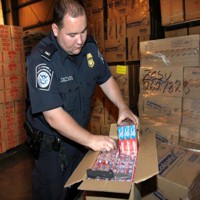As a presidential candidate, Barack Obama asserted that the most immediate and extreme threat to national security was that posed by a terrorist organization acquiring a nuclear weapon. As president, he pledged to mitigate that potentiality by securing all vulnerable nuclear material around the world within four years. Simultaneously, Obama pursued a high-profile nonproliferation and arms control strategy that, despite an intensive investment of political capital, has enjoyed only halting progress. Nuclear reduction negotiations with Russia have stalled. Prospects for multilateral treaties governing nuclear tests and the production of nuclear bomb fuel are distant possibilities at best. Meanwhile, Iran and North Korea march steadily forward with their own enrichment and, in the case of Pyongyang, nuclear testing programs, creating associated proliferation risks. Meanwhile, on Obama’s all important four-year goal, initial ebullience has given way to skepticism and plodding progress, most recently illustrated last month by the Nuclear Security Summit in Seoul, South Korea.
In Seoul, heads of state from more than 50 countries came together to take action against the illicit proliferation of materials and technology that can be used to build nuclear weapons or radiological "dirty bombs." The gathering yielded a series of sporadic new attempts to address the lengthening proliferation supply chain around the globe, building on progress made at the inaugural 2010 Nuclear Security Summit in Washington, which resulted in bolstered efforts to secure fissile material, primarily in post-Soviet countries.
But the fundamental shortcoming of this and other international nonproliferation efforts is their failure to gain worldwide traction. Their claims to be “global” notwithstanding, the lion’s share of nonproliferation programming has been designed by wealthy countries of the developed North, with little relevance to the pressing concerns of the Global South.

